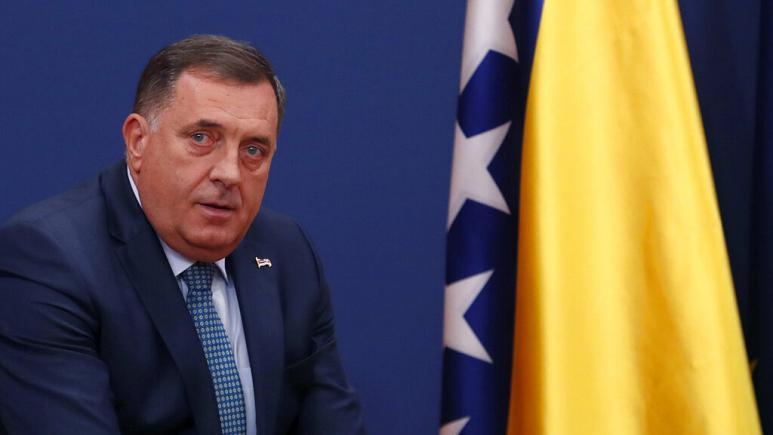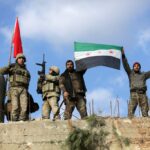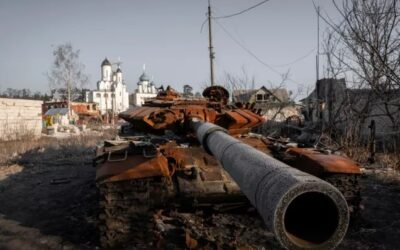INTERNATIONAL RELATIONS
INTERNATIONAL RELATIONS

The Bosnian Serb Parliament began on Friday 10/12, a controversial process of secession from Bosnia’s common institutions, mainly the army, despite warnings from Western powers.
The Assembly of the Republika Srpska (Bosnian Serb entity), held in Banja Luka, gave the Government six months to organize the withdrawal from Bosnia’s three crucial institutions: the army, the rule of law, and the tax administration.
After eight hours of debate, MEPs adopted the proposed non-binding text by 49 votes to three. The military, justice, and tax administration are key pillars of the system established by the Dayton Peace Accords.
“Bosnia is heading in a direction we did not agree to by signing the Dayton Peace Accords,” said 62 years-old Bosnian Serb political leader Milorad Dodik. “The time has come for the Republika Srpska to gain freedom […] Bosnia is an experiment […] I do not think it can survive because it does not have the internal capacity to survive,” he added.
From its side, the opposition has warned that these moves could lead Republika Srpska to a new war. “I think the path you have chosen is dangerous for Republika Srpska and we cannot follow you,” said Mirko Sarovic, the head of the largest opposition Serb Democratic Party.
Also read: Bosnia and Herzegovina | Prospect of new war in Bosnia – EuFor peacekeeping mission expires
In a joint statement, the embassies of the United States, the United Kingdom, France, Germany, Italy, and the European Union delegation stated that the parliament motion was “a further escalatory step”.
“Members of the governing coalition in the RS (Republika Srpska) must be aware that continuing this dead-end path of challenging the Dayton framework is damaging the economic prospects of the entity, threatening the stability of the country and the entire region and jeopardizing Bosnia’s future with the EU,” the ambassadors stressed.
The Dayton Accords ended the war between the Bosnian communities in 1995 (100,000 dead) and ratified the division of Bosnia into two entities, the Republika Srpska and a Croat-Muslim entity. The Bosnian Serb political leader has been threatening secession for years. Dodik, a member of Bosnia’s collective presidency, systematically complains that the country in which he participates in the collective leadership is “impossible.”
In the post-war years, a weak central state established common institutions, the army, the rule of law, tax administration, and the intelligence services. Milorad Dodik states that the delegation of powers from the entities to the central government was done with 140 decisions and he wants the return of all these powers to the Republika Srpska, starting with the army, the rule of law, and the tax administration.
Dodik was once a moderate politician and a protector of Western powers. Today he is a nationalist and is supported by Moscow. He blames Westerners for weakening the Republika Srpska over the years by strengthening the central state through the imposition of reforms, a process desired by Bosnian Muslims.
Source: CNA, Reuters
Also read: Serbia-Kosovo border tensions escalate
NEWSLETTER SUBSCRIPTION
Denmark | Huge Increase in Defence Spending for Greenland
Denmark announced a huge increase in defence spending for Greenland. Danish Defence Minister Troels Lund Poulsen said…
Syria | Agreement on the Dissolution of Armed Organisations and their Subordination to the Ministry of Defence
Ahmed al-Sara, the Syrian president appointed by the Hayat Tahrir al-Sham organisation, has reached an agreement with the leaders of armed…
Reactions in Nicosia and Athens to the Upcoming Turkey-Syria Agreement on the Delimitation of the EEZ
As reported by Hurriyet’s English-language edition, Turkey is in advanced talks with the new Syrian leadership to establish…
USA | Approval for the Sale of Aerosonde Drones for Greece’s M1117
The State Department has approved the sale of Aerosonde unmanned aerial systems (UAS) to Greece for approximately $30 million, which will…
Denmark | Huge Increase in Defence Spending for Greenland
Denmark announced a huge increase in defence spending for Greenland. Danish Defence Minister Troels Lund Poulsen said…
Syria | Agreement on the Dissolution of Armed Organisations and their Subordination to the Ministry of Defence
Ahmed al-Sara, the Syrian president appointed by the Hayat Tahrir al-Sham organisation, has reached an agreement with the leaders of armed…
Reactions in Nicosia and Athens to the Upcoming Turkey-Syria Agreement on the Delimitation of the EEZ
As reported by Hurriyet’s English-language edition, Turkey is in advanced talks with the new Syrian leadership to establish…
MILTECH – IAI | Agreement for Cooperation in Greece’s New Anti-Aircraft “Dome”
MILTECH Hellas SA and Israel Aerospace Industries (IAI) signed today a cooperation agreement in the context of the implementation of the…
Losses for North Korea in Ukraine | 1,100 soldiers have been killed or wounded
North Korea’s losses in the Russia-Ukraine war are heavy, as more than 1,000 North Korean soldiers have been killed or injured…


















